博雅闻道2018届高三第三次联合质量测评英语试题含参考答案
博雅闻道2018届高三第三次联合质量测评英语试题,本文伊顿教育小编为大家整理了本套试题的试题,没有做过题同学可以拷贝本文,做做测试。做完测试的同学可点击:博雅闻道2018届高三第三次联合质量测评英语试题参考答案,进行答案的核对,希望能帮到大家!

第一部分 听力(共两节,30分)
做题时,先将答案标在试卷上。录音内容结束后,你将有两分钟的时间将试卷上的答案转涂到答题卡上。
第一节(共5小题;每小题1.5分,7.5分)
听下面5段对话。每段对话后有一个小题,从题中所给的A、B、C三个选项中选出较佳选项,并标在试卷的相应位置。听完每段对话后,你都有10秒钟的时间来回答有关小题和阅读下一小题。每段对话仅读一遍。
例:How much is the shirt?
A. £19.15 B. £9.18 C. £9.15
答案是C。
1. When will the man get to the railway station?
A. 9:40. B. 10:00. C. 10:20.
2. What are the speakers talking about?
A. The travel plan.
B. Hobbies and interests.
C. Some places of interest.
3. What did the man do yesterday evening?
A. Watched TV play.
B. Played computer games.
C. Studied for the English exam.
4. Where does the conversation probably take place?
A. In a restaurant.
B. In an office.
C. At home.
5. What is the probable relationship between the speakers?
A. Father and daughter.
B. Boss and employee.
C. Teacher and student.
第二节(共15小题;每小题1.5分,22.5分)
听下面5段对话或独白。每段对话或独白后有几个小题,从题中所给的A、B、C三个选项中选出较佳选项,并标在试卷相应位置。听每段对话或独白前,你将有时间阅读各个小题,每小题5秒钟;听完后,各小题将给出5秒钟的作答时间。每段对话或独白读两遍。
听第6段材料,回答第6~7题。
6. What do you think the man is?
A. A postman.
B. A taxi driver.
C. A policeman.
7. What does the woman advise the man to do?
A. To get a new job.
B. To retire right away.
C. To move to New York.
#p#副标题#e#
听第7段材料,回答第8 ~ 10题。
8. Why doesn’t the woman want to see a doctor?
A. She doesn’t like doctors.
B. She has taken some medicine.
C. She feels better now.
9. What is the woman doing now?
A. She is lying in bed.
B. She is reading an article.
C. She is writing a book.
10. What’s the probable relationship between the speakers?
A. Mother and son.
B. Teacher and student.
C. Friends.
听第8段材料,回答第11 ~ 13题。
11. When will the man get paid?
A. Until next month.
B. Until next Monday.
C. Until next Sunday.
12. Why is the woman short of money?
A. She wants to repair her car.
B. She plans to buy a new car.
C. She intends to decorate her car.
13. How much will the man get from the woman?
A. $ 50. B. $ 30. C. $ 20.
听第9段材料,回答第14 ~ 16题。
14. What does the woman think of the university’s plan?
A. It’s useless.
B. It’s ridiculous.
C. It’s understandable.
15. What should the university do about the bus service according to the man?
A. Change the route.
B. Reduce the price.
C. Increase the buses.
16. Why does the man oppose adding more parking?
A. He doesn’t like driving.
B. More students will drive.
C. It will cost a lot of money.
听第10段材料,回答第17 ~ 20题。
17. What’s special about Learning English’s programs?
A. They are slower than normal.
B. They are quicker than normal.
C. They are longer than normal.
18. When was the name of Learning English used?
A. 35 years after it was set up.
B. 45 years after it was set up.
C. 55 years after it was set up.
19. How does VOA Learning English arouse people’s interest?
A. By talking about American life. :
B. By introducing popular culture.
C. By offering different kinds of news.
20. What are we allowed to do?
A. Reprint texts from Learning English.
B. Republish photos from Reuters.
C. Reprint video images from AP.
#p#副标题#e#
第二部分 阅读理解(共两节,40分)
第一节(共15小题;每小题2分,30分)
阅读下列短文,从每题所给的四个选项(A、B、C和D)中,选出较佳选项,并在答题卡上将该项涂黑。
A
100 - Word - Story Competition 2017
Our annual short - story competition is back for its eighth year. As ever, we look forward to reading yours! You could win £1,000 and all shortlisted stories will be published in a special anthology (选集) by Lulu.com
The Rules
Please ensure that submissions are original, not previously published and exactly 100 words long (not including the title). Don’t forget to include your full name, address, email and daytime phone number when filling in the form. We may use entries in all print and electronic media. Contributions become world copyright of Reader’s Digest.
The judges’ decision is final.
Terms and conditions:
There are three categories—one for adults and two categories for schools: one for children aged 12-18 and one for children under 12.
In the adult category, the winner will receive £1,000 and two runners-up will each receive £250.
In the 12-18 s and under-12s categories, the winners will each receive a Fire HD 8 Tablet and a selection of STAEDTLER products worth £50, plus two STAEDTLER classpacks of pencils for their school. The two runners-up in both categories will each receive a Kindle E-Reader.
Please submit your stories by 5 pm. on February 19th.
The editorial team will pick a shortlist of entries, which this year will be combined into a short-story anthology and published by our partner lulu.com. Winners of the categories will have an opportunity to write a longer version of their stories for inclusion in the book.
The three best stories in each category will be posted online at readers digest, co. uk on February 27th. You can vote for your favourite, and the one with the most votes wins the top prize. Voting will close at 5 pm. on March 19th and the winning entries will be published in our April (1st) issue.
21. What do we learn about the competition?
A. All the stories will be published.
B. You can choose whichever category.
C. Your story must be within 100 words.
D. Your story must be written by yourself.
22. How long will you wait to know the final result after you have sent your work?
A. At least eight days.
B. At least one month.
C. At most one month.
D. At most two months.
23. Who will determine the final top prize?
A. The judges.
B. The writers.
C. The experts.
D. The audiences.
#p#副标题#e#
B
I always wanted to go to college, even though no one in my family had ever done it and there was no money for tuition.
My parents encouraged me to attend the state school that accepted me. This would mean heavy debt for all of us, but they wanted me to earn a college degree. I went there in July, but spent the entire three days with a strong feeling that it was not where I was supposed to be. The school was huge and the experience impersonal.
While I was upset, I thought of a private school in my town. It was extremely expensive for us. My father had worked there on and off, continuously contracted out to paint many classrooms and offices.
I went home and told my father about my new wishes. He was speechless. He sat with his head in his hands, not believing what I was proposing now. After a long while my father told me he would inquire about an application at the school.
What I did not know was that my father had gone to the president of the college himself. My father had painted his house. He went to ask the president not only if I stood a chance of being accepted, but if he might honor all the years my father had worked on the college and treat him like an actual employee in this one instance.
This was a very meaningful request, since college employees were allowed to have their children’s tuition waived (免除).
When my father came home with not only the news that I had been accepted, but I was going to go to school at no charge. I couldn’t believe it.
All these years later, I still have no idea why that man chose to bestow (授予) such tremendous kindness on my family and me. They say God puts it on our hearts to do good deeds for each other. Perhaps it was like that for him. All I know is that if I hadn’t listened to my heart on that other college campus, I would have missed out on the greatest blessing of my life.
24. Why did the author choose the private school instead of the state school?
A. His father has worked in the private school.
B. The tuition of the state school was very high.
C. He felt very uncomfortable at the state school.
D. He prefered the private school in his hometown.
25. How did the father feel after hearing the author’s new thought?
A. Excited and satisfied.
B. Surprised and confused.
C. Doubtful and opposed.
D. Disappointed and angry.
26. Why did the author’s father want to be treated like an actual employee?
A. To get more painting work.
B. To make the author accepted.
C. To win some spiritual privileges.
D. To enjoy some economic benefits.
27. What message does the author want to convey by sharing his experience?
A. Try to help others whenever you can.
B. Never allow an opportunity to slip past.
C. Have the courage to chase your dreams.
D. Don’t be content with things as they are.
#p#副标题#e#
C
At least 40% of Australian households now have at least one home “Internet of Things” device. These are fridges, window blinds, locks and other devices that are connected to the Internet.
While the Internet of Things (IoT) may lead to more efficiency in our daily lives, my research shows that consumers are exposed to many risks by the use of IoT devices, ranging from disclosure of private information, to physical injury and problems with the devices themselves.
Australia has no specific laws aimed at addressing IoT issues, and current laws intended to protect consumers have gaps and uncertainties when dealing with IoT devices. Many IoT device manufacturers and suppliers show little regard for customers, privacy. Some even make money from customer data.
Consumer electronics company Vizio recently agreed to pay US regulators US $ 2.2 million, after failing to get appropriate permission from users to track their TV viewing habits.
Late last year, the Norwegian Consumer Council found that a children’s doll recorded anything said to it by children and sent the recordings to a US company. The company reserved the right to share and use the data for a broad range of purposes.
IoT devices have the potential to collect more private data about individuals than was possible with previous devices. All this data can then be used to study consumers, predict our behavior, and sell us products at times when our willpower is lowest. Some companies are currently using technology to track consumers through stores and send their messages to mobile phones. This may be linked to our purchase history.
Consumers are exposed to significant risks from IoT devices, from the use of data, to security flaws and devices no longer being supported. They should think long and hard about the risks they are taking on with IoT devices. Do you really need that internet - connected hairbrush?
28. What do we learn about IoT devices in Australia?
A. They are not well received.
B. They serve no practical purpose.
C. People’s privacy is protected by them.
D. No laws can solve problems about them.
29. Why do some companies collect data about individuals?
A. To provide better service.
B. To develop better products.
C. To increase economic benefits.
D. To better understand customers.
30. Which of the following sayings can best show the author’s attitude towards IoT devices?
A. Better be safe than sorry.
B. Every cloud has a silver lining.
C. Every coin has two sides.
D. One man’s meat is another man’s poison.
31. What would be the best title for this passage?
A. Say Goodbye to IoT Devices.
B. Your Devices Can Spy on You.
C. Use Your IoT Devices Correctly.
D. Companies Need Customer Data.
#p#副标题#e#
D
The quality of our seafood has been in the news a lot lately. A new study has found that people who eat seafood are also eating plastic—11,000 pieces of microplastic per year to be exact.
Researchers at the University of Ghent in Belgium found that seafood eaters are consuming plastic at a concerning rate.
“Per serving of mussels, which contains about 300 grams of mussel meat, you get 300 pieces of plastic inside your body,” researchers wrote. Researchers don’t yet know the implications of eating microplastic, but they worry that it could have negative consequences on our health.
While we don’t know what microplastic does yet to humans, we do know what it does to sea animals. In ealier studies, scientists have found that when fish eat microplastics, it prevents their growth and changes their feeding patterns. In fact, fish will stop eating natural sources of nutrients, and only go for plastic.
When you’re done using plastic, a small portion (部分) may be recycled. However, more than likely it’s in a landfill or making its way towards the ocean. Once rubbish hits the water, sea creatures may mistake it for food. This often leads to poisoning or death. If they get caught for human’s food, the plastic may very well make its way back to you—on your dinner plate.
According to a study published in Science magazine, eight million tons of plastic go into our waterways every year. The problem is so serious that scientists say that by 2050 the weight of plastic in our oceans will outweigh fish. And just because it’s out of sight, doesn’t mean it should be out of mind.
There’s no immediate way to prevent microplastic from ending up in your body. However, you can help reduce the amount of plastic reaching rivers, lakes and oceans in the first place. You can make a difference with your choices every day. Even small changes will add up. While your dinner may contain microplastic, you can help prevent the future generations from having that same problem.
32. What does the underlined word “implications” probably mean?
A. Real functions.
B. Possible effects.
C. Logical reasons.
D. Potential benefits.
33. What do we learn about microplastics in the oceans?
A. They make fish grow quickly.
B. Fish are sick and tired of them.
C. Fish tend to be addicted to them.
D. They don’t affect fish’s eating habits.
34. What’s the main idea of Paragraph 5?
A. You get what you pay for.
B. Sea creatures eat different foods.
C. What goes around comes around.
D. Plastic can9t be digested by sea animals.
35. What’s the writer’s purpose of writing the last paragraph?
A. To give us a final warning.
B. To appeal to us for action.
C. To offer us a brief summary.
D. To send us a gentle reminder.
#p#副标题#e#
第二节(共5小题;每小题2分,10分)
根据短文内容,从短文后的选项中选出能填入空白处的较佳选项。选项中有两项为多余选项。
In many countries the best, and sometimes only, path to acceptance to a university is having high test scores or good grades.
In the US, admissions officials almost always ask students to list the activities they are involved in outside of the classroom in their applications. 36 This method of considering both academic success and non - academic skills is known as holistic (的) admissions.
The more a school knows about a student’s interests, the more they understand the student. 37 The best American universities receive thousands of applications from both inside and outside the country. For example, Washington University had over 30,000 applicants for the 2017 school year. But it only had room to accept about 16 percent of them.
38 What would schools value more: playing basketball or singing in a musical group? Is it more important to spend weekends serving free food to homeless people or cleaning up a public park?
Thinking about holistic admissions in this way is not helpful. Instead of trying to figure out which activities are better than others, you should think about which activities serve you best as an individual. 39
A student could explain their interest in reading many books or even exploring their home city. 40 Students, for example, can bring attention to their special qualities in the writing samples they provide, or the letters they ask teachers to write in support of them.
Students should trust that admissions officials will consider their personal history and what might have been available to them. The holistic method lets them pay more attention to the qualities they are looking for, not only academics.
A. Many universities only value test scores.
B. You can do almost anything, as long as it’s legal.
C. It’s difficult to choose an activity that suits you best.
D. Some students might wonder how to choose activities.
E. This is especially important for the top universities in the US.
F. These activities can show that a student possesses the qualities they are looking for.
G. Also, there are other places where a student can describe their non - academic interests.
第三部分 语言知识运用(共两节,45分)
第一节 完形填空(共20小题;每小题1.5分,30分)
阅读下面短文,从短文后各题所给的四个选项(A、B、C和D)中,选出可以填入空白处的较佳选项,并在答题卡上将该项涂黑。
In these days of the non caring attitudes of so many people, I was pleasantly surprised to see a kind act 41 right in front of me in a busy crossing road.
We were waiting in our car for the traffic lights to turn 42 , when I saw a young man’s bicycle topple (倾斜) and 43 against the sidewalk. The heavy 44 of boxes and other packages fell to the ground together with the cycle. As most of the boxes were 45 to the bicycle, he obviously could not 46 the whole load on his own. Since it was a busy road, he 47 here and there, hoping for some help.
I was wondering what would 48 to the young man, when I saw two men come out of their car which was first in 49 , waiting at the traffic lights and 50 to the misfortune.
51 , a woman crossing the road was trying to help the man. Seeing the two men 52 , she moved aside. These two big built men 53 the cycle with its heavy load and 54 it up straight. By then, three more 55 stopped and with the woman helped in reloading the cycle again.
The traffic light had turned green as soon as the men 56 from the car, but there was no 57 from any of the drivers waiting in the queue. The 58 driver and his companion 59 quickly to their car and the patiently waiting traffic moved forward at ease.
This 60 scene on a very busy road in our big city made me thankful for such helpful and capable citizens.
41. A. displaying B. disappearing C. undertaking D. unfolding
42. A. green B. red C. yellow D. blank
43. A. go B. stand C. fall D. fight
44. A. content B. load C. object D. pressure
45. A. attached B. added C. related D. tied
46. A. pick up B. take up C. break up D. put up
47. A. wandered B. walked C. glanced D. observed
48. A. react B. belong C. happen D. apply
49. A. line B. action C. need D. balance
50. A. furthest B. closest C. easiest D. hardest
51. A. Curiously B. Apparently C. Sincerely D. Actually
52. A. approaching B. leaving C. driving D. standing
53. A. rode B. pushed C. lifted D. pulled
54. A. save B. bring C. give D. put
55. A. customers B. pedestrians C. audience D. clerks
56. A. got back B. got through C. got up D. got down
57. A. complaint B. praise C. sigh D. upset
58. A. hopeful B. delighted C. helpful D. devoted
59. A. replied B. stuck C. appealed D. returned
60. A. unbearable B. uncommon C. unfortunate D. unpleasant
#p#副标题#e#
第二节 语法填空(共10小题;每小题1.5分,15分)
阅读下面短文,在空白处填入1个适当的单词或括号内单词的正确形式。
With the increasing popularity of social websites and personal online blogs, the 61 (potential) harmful practice of oversharing has become much more common. Oversharing is the act of sharing too much information, or TMI, with people 62 are not necessarily prepared or qualified to receive it. Telling a co-worker you don’t want a piece of birthday cake may be 63 (accept), but adding the fact that you’re on a diet to lose 50 pounds would be oversharing. There are some personal facts others may not need or want to know.
Some oversharing is the result of a poorly 64 (develop) social filter (过滤器) or “shut up button.” Different people may have different ideas over 65 constitutes (构成) oversharing or TMI, so they may not realize they are making others feel uncomfortable.
Other times the oversharing may be an attempt 66 (break) the ice socially. By sharing a few embarrassing 67 (moment) with strangers, the oversharer lets others know it’s okay to let down their guards and 68 more open themselves.
While some oversharing may be OK, 69 is generally a good idea to develop a sense of propriety (得体) in order to a- void 70 (share) far too much personal information.
第四部分 写作(共两节,35分)
第一节 短文改错(共10小题;每小题1分,10分)
假定英语课上老师要求同桌之间交换修改作文,请你修改同桌写的以下作文。文中共有10处语言错误,每句中较多有两处。每处错误仅涉及一个单词的增加、删除或修改。
增加:在缺词处加一个漏字符号(∧),并在其下面写出该加的词。
删除:把多余的词用斜线(\)划掉。
修改:在错的词下划一横线,并在该词下面写出修改后的词。
注意:1.每处错误及其修改均仅限一词;
2.只允许修改10处,多者(从第11处起)不计分。
One day, I was in the school shop buying some goods. The student in the front of me fell short by 10 cent. The shop owner asked him to return something. He kept thinking, so it seemed he needed to buy all the items. He tries to convince the shop owner that he would pay it late, but the shop owner was unable to help him. Seeing this, I offered willing to pay the money. He hesitated a while and was wondering if to take it from a stranger. I gave him a sweet smile and saying, “Come on, this is how it goes round in the world.” He accepted our offer.
第二节 书面表达(25分)
假如你是李华,在一所国际学校读书,你校将举办主题为“中国茶艺”的传统文化讲座。请你用英语给你的英国校友Celina写一封电子邮件,邀请她参加。内容如下:
1. 时间;
2. 地点;
3. 准备事项。
注意:
1. 词数100左右;
2. 可以适当增加细节,以使行文连贯;
3. 参考词汇:茶艺tea making
Dear Celina,
Yours,
Li Hua
- 热门课程
- 热门资讯
- 热门资料
- 热门福利
-
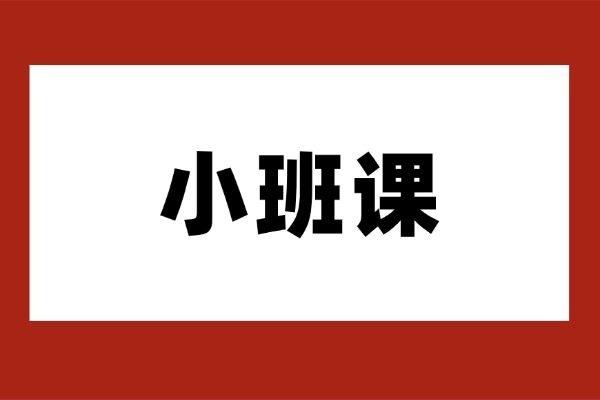 黄河小班课人数多吗?教学效果怎么样?黄河小班课之前就有家长和学生想要了解过,今天为了满足大家的要求,小编就来好好给大家解答一下关于黄河小班课的一些内容,让大家能够更加方便地做出选择。 一、黄河小班课人数多吗? 黄河小班课的人数控制得挺讲究,既不是那种三五个人的微型小组,也不会像其他学校那样挤着四五十个人,一个班大概在6到15人
黄河小班课人数多吗?教学效果怎么样?黄河小班课之前就有家长和学生想要了解过,今天为了满足大家的要求,小编就来好好给大家解答一下关于黄河小班课的一些内容,让大家能够更加方便地做出选择。 一、黄河小班课人数多吗? 黄河小班课的人数控制得挺讲究,既不是那种三五个人的微型小组,也不会像其他学校那样挤着四五十个人,一个班大概在6到15人 -
 “白驹过隙”怎么读?到底有什么含义?“白驹过隙” 是形容时光的经典表达,可你真能笃定 “驹” 字读 “jū” 而非 “jú”?而且 “白驹” 为何是 “白色的小马”,“过隙” 又特指什么缝隙? 一、“白驹过隙”怎么读? “白驹过隙”的正确读音是bái jū guò xì,“白驹”指白色的骏马,常被引申为太阳的光芒或飞速流逝的时
“白驹过隙”怎么读?到底有什么含义?“白驹过隙” 是形容时光的经典表达,可你真能笃定 “驹” 字读 “jū” 而非 “jú”?而且 “白驹” 为何是 “白色的小马”,“过隙” 又特指什么缝隙? 一、“白驹过隙”怎么读? “白驹过隙”的正确读音是bái jū guò xì,“白驹”指白色的骏马,常被引申为太阳的光芒或飞速流逝的时 -
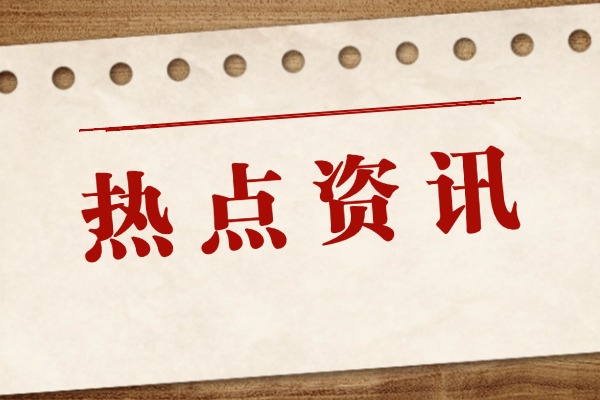 博大单招在文化课提升方面优势如何?补习效果好吗?单招相信第一次接触的家长和同学们有很多问题都不了解,很多家长为了让孩子更好地学习就去选择一个合适的单招补习,那么博大单招在这方面的优势到底怎么样?能不能帮助孩子更好地提升呢?今天我们就来一起好好了解一下。 一、博大单招在文化课提升方面优势如何? 博大单招在文化课提升这方面那真的是研究得透透的
博大单招在文化课提升方面优势如何?补习效果好吗?单招相信第一次接触的家长和同学们有很多问题都不了解,很多家长为了让孩子更好地学习就去选择一个合适的单招补习,那么博大单招在这方面的优势到底怎么样?能不能帮助孩子更好地提升呢?今天我们就来一起好好了解一下。 一、博大单招在文化课提升方面优势如何? 博大单招在文化课提升这方面那真的是研究得透透的 -
 “琨玉秋霜”怎么读?到底有什么含义?“琨玉秋霜” 中的“玉” 和 “秋霜” 都是自带高洁感的意象,可 “琨” 字到底读 “kūn” 还是 “hún”?单看字面像在描绘玉石与秋霜的景致,却猜不透为何要将这两种事物组合,更不清楚它的核心指向是写景、咏物还是喻人。今天咱们先把读音校准,再拆解这四字里藏着的纯粹与庄重。 一、“琨玉秋霜”
“琨玉秋霜”怎么读?到底有什么含义?“琨玉秋霜” 中的“玉” 和 “秋霜” 都是自带高洁感的意象,可 “琨” 字到底读 “kūn” 还是 “hún”?单看字面像在描绘玉石与秋霜的景致,却猜不透为何要将这两种事物组合,更不清楚它的核心指向是写景、咏物还是喻人。今天咱们先把读音校准,再拆解这四字里藏着的纯粹与庄重。 一、“琨玉秋霜”
-
 2022高考英语基础知识点!西安伊顿老师带你了解!2022高考英语基础知识点!西安伊顿老师带你了解!高中的英语是一个需要长期积累以及记忆的科目,在高考中只有针对这些知识进行一定的了解和积累,才可以在考试中取得好成绩。针对这种情况,小编请到了西安伊顿老师来给大家总结归纳一下关于高考英语基础知识点的记忆内容,希望对大家有所帮助。对于英语还是需要靠日
2022高考英语基础知识点!西安伊顿老师带你了解!2022高考英语基础知识点!西安伊顿老师带你了解!高中的英语是一个需要长期积累以及记忆的科目,在高考中只有针对这些知识进行一定的了解和积累,才可以在考试中取得好成绩。针对这种情况,小编请到了西安伊顿老师来给大家总结归纳一下关于高考英语基础知识点的记忆内容,希望对大家有所帮助。对于英语还是需要靠日 -
 关于“呐喊与行动那个更重要”的辩论稿写作指导!一直以来,辩论稿的写作都是大家司空见惯的,但是也是很多同学容易忽视的。现在的语文作文考察的范围和广度越来越大,涉及到的文体也越来越多,因此大家在备考语文作文的时候,还是要增加自己的知识面,增加自己的见识。辩论稿大家见得比较多,但是在语言文字上以及结构上的学习,还是非常值得探究的,下面小编给大家分享了一则辩论稿,大家可以练习一下。
关于“呐喊与行动那个更重要”的辩论稿写作指导!一直以来,辩论稿的写作都是大家司空见惯的,但是也是很多同学容易忽视的。现在的语文作文考察的范围和广度越来越大,涉及到的文体也越来越多,因此大家在备考语文作文的时候,还是要增加自己的知识面,增加自己的见识。辩论稿大家见得比较多,但是在语言文字上以及结构上的学习,还是非常值得探究的,下面小编给大家分享了一则辩论稿,大家可以练习一下。 -
 “直播带货”有关的作文写作指导!立意和审题指导!高中的作文写作更多的是来自于社会现象的思考,或者生活的思考,所以高中的同学在写作文的时候可以从生活细节入手,寻找素材,因为任何题目都是取之于生活,进而引发的一系列的思考行为。本次伊顿教育小编给大家分享的这篇作文也是一个社会现象的评述,材料内容是关于“直播带货”,这个大家都是不陌生的,而且有的同学也是参与者,所以对于此也是非常的熟悉的。下面我们可以来看看这篇作文写作的指导。
“直播带货”有关的作文写作指导!立意和审题指导!高中的作文写作更多的是来自于社会现象的思考,或者生活的思考,所以高中的同学在写作文的时候可以从生活细节入手,寻找素材,因为任何题目都是取之于生活,进而引发的一系列的思考行为。本次伊顿教育小编给大家分享的这篇作文也是一个社会现象的评述,材料内容是关于“直播带货”,这个大家都是不陌生的,而且有的同学也是参与者,所以对于此也是非常的熟悉的。下面我们可以来看看这篇作文写作的指导。 -
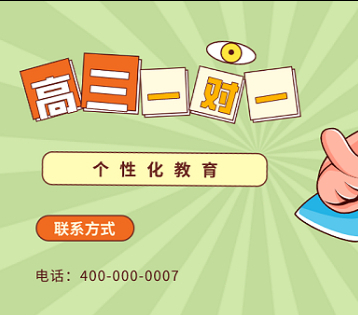 2021年9月山水联盟高三开学联考数学试卷及答案(原版)!2021年9月山水联盟高三开学联考已经结束,伊顿教育小编给大家整理了本次联考的数学试卷以及答案,各位相关的小伙伴可以参考一下。对于高三的学习,小编建议大家在每一次的考试之后,都能够仔细的分析一下自己的失分点,对于自己没有掌握的知识点可以尽早的掌握。
2021年9月山水联盟高三开学联考数学试卷及答案(原版)!2021年9月山水联盟高三开学联考已经结束,伊顿教育小编给大家整理了本次联考的数学试卷以及答案,各位相关的小伙伴可以参考一下。对于高三的学习,小编建议大家在每一次的考试之后,都能够仔细的分析一下自己的失分点,对于自己没有掌握的知识点可以尽早的掌握。








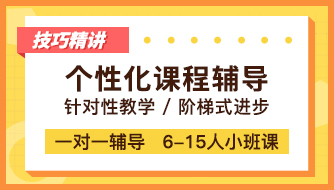

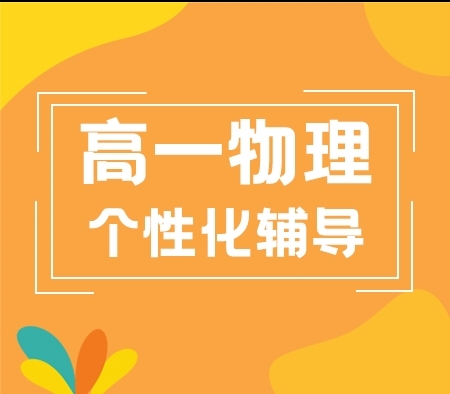
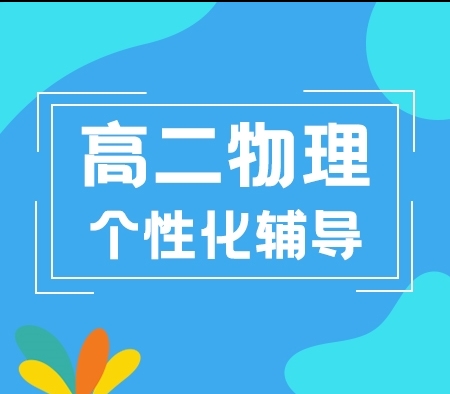
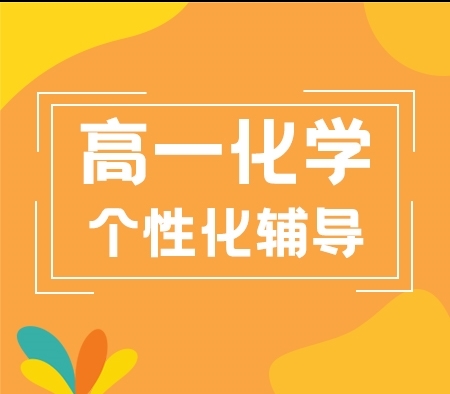
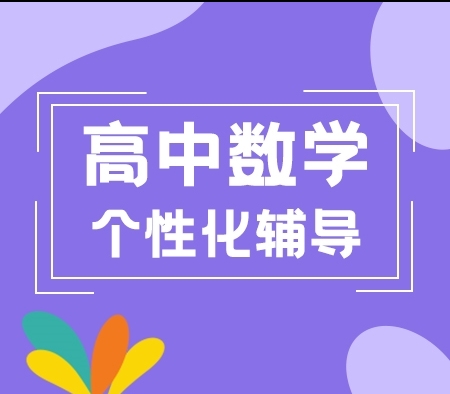




 All right reserved
All right reserved
